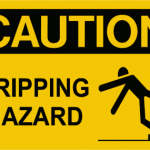As the majority of Americans are gearing up for baseball season, teachers are girding their loins for a less fun pastime; testing season. Testing season means walls must be covered so students can no longer use reminders around to room to aid them. Desks must be arranged in a way so students have no opportunity to look at their neighbor’s work. Scrap paper must be taken away. Pencils, tissues, and erasers must be positioned in places so students cannot get up from their desk to get what they need. Basically the classroom becomes the complete opposite of the safe, open, learning place that students have been used to all year.
Teachers have to attend trainings to prove they know how to give the test. They have to keep their students motivated to do well on the test. They must convince parents that the test is highly important for their child. Teachers must also sign confidentiality papers to keep everything secret. Teachers aren’t allowed to look at any items on the test or even talk about any items. However, many administrators and districts expect teachers to “teach to” the test.
Between prepping the classroom, amping up the students, and fearing for your job if you accidently violate any of the rules that go along with giving a high stakes test, (Oh no!!! My student just threw up all over his booklet and I picked it up to clean and it ripped apart! What do I do?!) this is an incredibly stressful time for teachers. The reason being is because teachers are acutely aware that the performance of their students will fall squarely on their shoulders. The sad truth is there is always another factor that seems to get through testing season in the clear; the actual test.
Most teachers have gone through extensive teacher preparation programs through universities or other avenues. Most programs include a course on assessment design and analysis. In this course, teachers learn there are two reasons why students perform inadequately on an assessment. Either the teacher failed to teach the content to the students or there is a fault in the design of the assessment. Because of all of the confidentiality agreements, the test never gets put under the spotlight.
After looking at our testing data from our high stakes pre-test which was dismal, I saw the faces of all my fellow teachers. They looked crushed. I know they work so hard to help our students just like every other educator in our country. This myth that teachers are in this career because it’s easy and we get summers off needs to stop. Even the most inexperienced teacher is busting their behind to do well for their students. Why are we constantly blaming the teachers? When can we flip accountability back on the test?
These tests seem to be considered some sacred cow that no one can touch but they are not perfect. Once the test has been given, the test items should be made public so everyone can see why the students performed the way they did. However, if publishing companies did that, then they would have to spend time and money to rewrite the tests every year instead of selling the same old test to districts every year. These tests cost anywhere between $20 to $50 per student. That’s a lot of money per district.
Over the last few years, I have noticed a few trends in the tests that cause my students to struggle. More testing is done online now which means testing can become more creative than filling in bubble sheets. There are items with multiple answers. There are items that are open ended and students must type their own answer. There are items where students must drag and drop different choices on the screen. Items like this put our poorer students at a disadvantage. If students do not have access to a computer, they have never learned to type. They don’t understand how to use the mouse or mouse pad to manipulate things on the screen. My heart breaks every time my students raise their hands to ask for help. I have to walk over to them and remind them that I can’t give them any support.
Another fault with many of these high stakes test is the level of questioning that are asked of our students in an effort to be rigorous. When teachers give instruction over content, they know their students will exceed the standard, meet the standard, approach it, or fall below it. The majority of instruction time is spent teaching most of the students to meet the standard. I will note that effective teachers provide extensions and interventions for the students that are outliers. Most of the questions on these assessments are expecting students to perform at the exceeding level for the content. It doesn’t sound too bad until you realize that when students exceed at content, most teachers begin teaching them to use that content at the next grade level. So these tests are using questions that are at the grade level above where the students are at. Then the teacher is to blame when students are not exceeding at the test.
I will never disagree that teachers should be held accountable. However, when will we stop being the only ones held accountable?










Comments 2
I agree with your last statement, “when will we stop being the only ones held accountable”
I think the teachers in our earlier grades have a huge enough job already, then to be put in the position of high stakes testing at ever increasingly earlier ages. It is not a good model in my opinion. Like you, I agree that we should hold teachers accountable, but judging everything on high stakes tests is not the measurement tool of determining student success.
Thanks for allowing us to peek into our reality. As an educator who hasn’t taught in a testing grade. Learning about the experience of both the students and teachers interests me. I really related to the quote about the assessment class we took. Thank you for sharing your experience both by stating the need for accountability but the reality of looking at what high stakes test really mean.